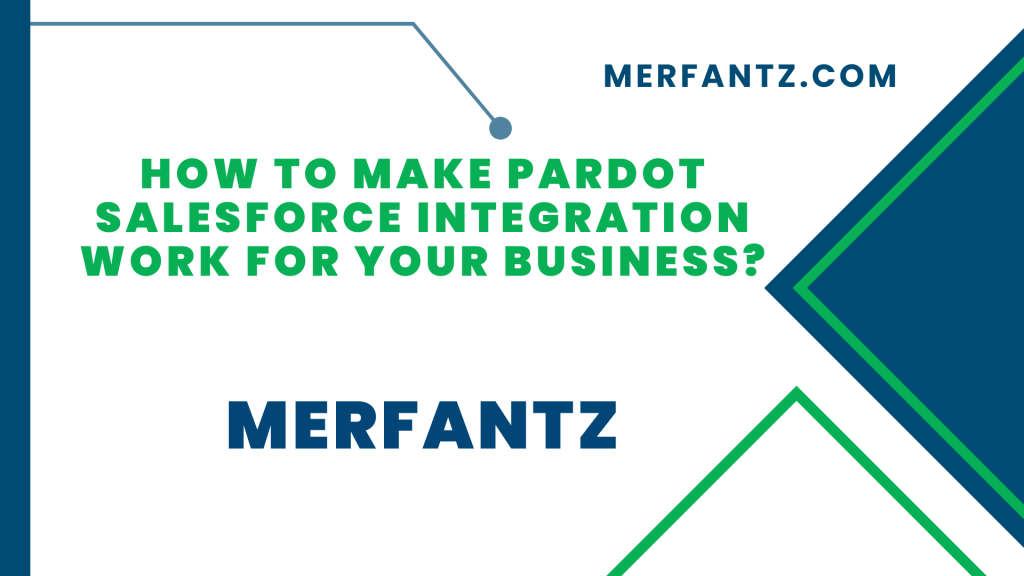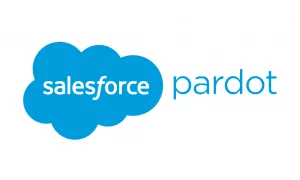Why Pardot Salesforce Integration Matters for Your Business
In today’s fast-paced digital landscape, businesses are constantly striving to optimize their marketing and sales efforts to stay ahead of the competition. This is where Pardot Salesforce Integration comes into play. It is a game-changing solution that allows seamless alignment between your marketing automation platform, Pardot, and the powerful CRM system, Salesforce. By integrating these two robust platforms, businesses can streamline their processes, enhance data visibility, and foster collaboration between sales and marketing teams.
Pardot Salesforce Integration empowers your organization with a unified view of customer interactions and engagement across various touchpoints. With this holistic approach, you can better understand your leads’ behaviors, preferences, and pain points, enabling you to deliver personalized and targeted marketing campaigns. Moreover, this integration facilitates automated lead nurturing and efficient lead management, saving valuable time and resources while boosting overall conversion rates. As your marketing and sales efforts work in perfect harmony, you can create a more seamless customer journey, leading to increased customer satisfaction and loyalty.
Understanding the Key Benefits of Pardot Salesforce Integration
The benefits of Pardot Salesforce Integration extend beyond mere efficiency gains. One of the primary advantages is the ability to close the loop between marketing and sales activities. By syncing valuable data between Pardot and Salesforce, your sales team gains access to real-time lead intelligence, allowing them to prioritize leads based on engagement levels and interactions. This, in turn, leads to faster and more informed decision-making, resulting in a more agile and effective sales process.
Moreover, Pardot Salesforce Integration provides comprehensive and insightful reporting capabilities. With access to detailed analytics on campaign performance, lead quality, and conversion rates, your teams can make data-driven decisions. These insights enable you to identify successful strategies and areas for improvement, enabling continuous optimization of your marketing efforts. By harnessing the power of data-driven decision-making, you can fine-tune your marketing strategies, allocate resources wisely, and maximize your return on investment (ROI).
Step 1: Preparing Your Salesforce and Pardot Accounts
Before diving into the integration process, it is crucial to ensure that both your Salesforce and Pardot accounts are properly set up and ready for integration. Start by verifying that you have the necessary administrative access to make changes and establish connections between the platforms. Next, conduct a thorough review of your existing data in both systems to eliminate any duplicates and inconsistencies.
Additionally, align your sales and marketing teams’ goals and objectives to ensure a unified approach to the integration process. Clear communication and collaboration between the teams are vital for a successful integration that yields the desired results. By laying a strong foundation through preparatory steps, you can ensure a smoother and more efficient integration process in the subsequent stages.
Step 2: Configuring Pardot for Seamless Integration
With your Salesforce and Pardot accounts in order, it’s time to delve into the configuration phase. Begin by establishing a secure connection between the two platforms, enabling data to flow seamlessly between them. Pardot offers user-friendly tools and settings that facilitate the integration process, but attention to detail is crucial to ensure accuracy and avoid data discrepancies.
During the configuration process, map your Pardot prospect fields to their corresponding Salesforce lead fields. This mapping ensures that data is correctly synchronized between the platforms and allows for a unified view of each lead’s information. Additionally, set up automation rules to automate lead assignment, lead scoring, and other critical processes. By configuring Pardot with precision, you can unleash the full potential of Pardot Salesforce Integration and optimize your marketing and sales efforts.
Step 3: Aligning Sales and Marketing with Integrated Data
With the technical aspects of integration completed, it’s time to focus on aligning your sales and marketing teams to make the most of the integrated data. Foster open communication and collaboration between both teams, encouraging them to share insights and feedback regularly. This alignment ensures that sales reps have access to relevant lead information and can efficiently follow up with prospects, resulting in a more personalized and impactful sales approach.
Furthermore, conduct joint training sessions for both sales and marketing teams to familiarize them with the integrated systems and tools. This training empowers them to leverage the shared data effectively and fosters a culture of teamwork. As both teams gain a deeper understanding of each other’s workflows and challenges, they can work together more seamlessly, driving higher lead conversion rates and revenue growth.
Best Practices for Automated Lead Nurturing and Management
One of the most powerful features of Pardot Salesforce Integration is the ability to automate lead nurturing and management. Implement best practices to create targeted and personalized lead nurturing campaigns based on lead behavior, interests, and demographics. Utilize dynamic content to deliver customized messages that resonate with your leads, increasing engagement and conversion rates.
Set up automated lead scoring processes to identify and prioritize high-quality leads. By assigning scores based on lead interactions with your content and website, your sales team can focus their efforts on leads that are most likely to convert. Regularly analyze and refine your lead scoring criteria to ensure it aligns with your evolving business objectives.
Leveraging Pardot’s Advanced Reporting for Data-Driven Decisions
Data-driven decision-making is essential for continuous improvement and achieving optimal results. With Pardot’s advanced reporting capabilities, you can gain deep insights into the performance of your marketing campaigns and lead engagement. Analyze key metrics such as email open rates, click-through rates, and form submissions to gauge the effectiveness of your marketing efforts.
Use Pardot’s reports to identify trends and patterns in lead behavior, allowing you to tailor your marketing strategies accordingly. Armed with data-backed insights, you can make informed decisions to optimize your campaigns, refine your messaging, and allocate resources to initiatives that drive the most significant impact.
Ensuring Data Privacy and Security in the Integration Process
As you integrate your Pardot and Salesforce platforms, safeguarding your customer data is of utmost importance. Ensure that your integration process complies with industry-standard data protection regulations and best practices. Implement encryption measures to secure data transmission and storage between the platforms, protecting sensitive customer information.
Regularly conduct security audits to identify and address any vulnerabilities in the integrated system. Train your team members on data security protocols and restrict access to sensitive data to authorized personnel only. Prioritizing data privacy and security not only builds trust with your customers but also shields your business from potential data breaches and legal repercussions.
Troubleshooting Common Challenges in Pardot Salesforce Integration
Despite careful planning and execution, integration processes may encounter challenges. Common issues include data synchronization errors, field mapping discrepancies, and automation rule misconfigurations. To overcome these challenges, maintain a detailed log of integration activities and regularly monitor data flows between the platforms.
Incorporate a comprehensive testing phase before fully deploying the integration. Conduct tests to ensure that data is accurately mapped, automation rules function as intended, and leads are appropriately assigned. Regularly communicate with your team and vendors to address any emerging issues promptly.
Real-Life Success Stories: How Companies Transformed with Pardot Salesforce Integration
Real-life success stories demonstrate the transformative power of Pardot Salesforce Integration. Companies have reported significant improvements in lead generation, lead conversion rates, and marketing ROI. These success stories highlight how seamless data integration enables businesses to deliver targeted, personalized marketing campaigns that resonate with their audience.
Through Pardot Salesforce Integration, companies have achieved enhanced sales and marketing alignment, leading to increased collaboration and more effective lead handoffs. These stories serve as inspiration for your own integration journey, illustrating the immense potential of aligning your marketing automation efforts with a robust CRM system like Salesforce.
FAQ
What is Pardot Salesforce Integration?
Pardot Salesforce Integration refers to the process of connecting Salesforce, a leading CRM platform, with Pardot, a powerful marketing automation tool. This integration allows businesses to seamlessly align their marketing and sales efforts, gain unified customer insights, and drive higher conversion rates.
How long does the integration process take?
The duration of the integration process depends on factors such as the complexity of your data, the size of your database, and the level of customization required. A well-planned integration can be completed within a few weeks, but it’s essential to allocate sufficient time for testing and fine-tuning.
Can Pardot Salesforce Integration improve lead nurturing?
Absolutely! Pardot Salesforce Integration empowers businesses to automate lead nurturing processes, delivering targeted and personalized content based on lead behavior and interests. This nurturing approach fosters stronger customer relationships and improves overall lead quality.
Is Pardot Salesforce Integration suitable for small businesses?*
Yes, Pardot Salesforce Integration is beneficial for businesses of all sizes. It helps small businesses streamline their marketing and sales efforts, optimize lead management, and achieve better outcomes with limited resources.
How do Pardot and Salesforce work together?
Pardot and Salesforce work together through seamless integration, allowing marketing and sales teams to align efforts, share data, and automate processes for better lead management and customer insights.
How do I link Pardot to Salesforce?
You can link Pardot to Salesforce by establishing a secure connection and mapping fields between the two platforms, enabling data synchronization and real-time updates.
How can your sales team benefit from connecting your Pardot and Salesforce accounts?
Connecting Pardot and Salesforce empowers your sales team with real-time lead intelligence, prioritized leads based on engagement, and a unified view of customer interactions, enabling more personalized and efficient sales efforts.
How do you integrate Pardot with a website?
You can integrate Pardot with a website by embedding Pardot forms, tracking codes, and cookies to capture visitor data, measure engagement, and automate lead nurturing based on user interactions.
Conclusion
In conclusion, Pardot Salesforce Integration offers a wealth of opportunities for businesses to unlock their full potential in today’s competitive landscape. By aligning marketing automation with a robust CRM system, companies can enhance lead generation, improve lead nurturing, and boost overall sales performance. Implementing best practices, ensuring data security, and fostering sales and marketing alignment are key to a successful integration process.
With Merfantz Technologies at your side, you can embark on this integration journey with confidence. Our expertise in Pardot Salesforce Integration and commitment to data-driven success will guide you towards achieving remarkable results. Embrace the power of integration and transform your business into a marketing and sales powerhouse today.
Author Bio
Co-Founder & CMO at Merfantz Technologies Pvt Ltd | Marketing Manager for FieldAx Field Service Software | Salesforce All-Star Ranger and Community Contributor | Salesforce Content Creation for Knowledge Sharing







